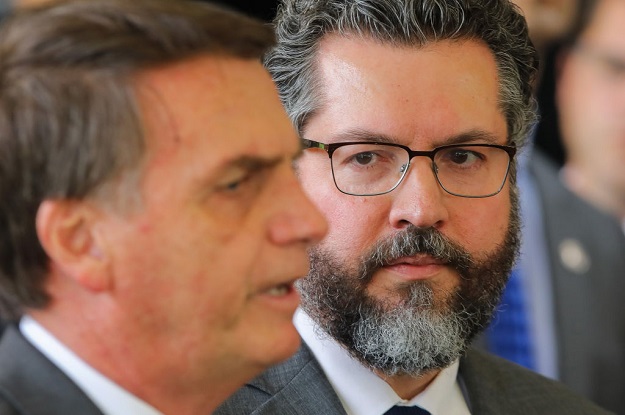BY OLIVER STUENKEL | NOVEMBER 19, 2018
Ernesto Araújo’s appointment is a victory for the pro-Trump faction in Bolsonaro’s government. But he’ll face powerful internal enemies.
When Brazil’s President-elect Jair Bolsonaro announced his foreign minister pick last week – in Trumpian fashion, via Twitter – most observers were stunned. Ernesto Araújo, a relatively obscure mid-level career diplomat, had never even headed an embassy abroad. More importantly, his blog revealed opinions many mainstream international relations scholars, journalists and the diplomatic community considered to be outside of the normal spectrum of ideas – such as his desire to combat globalism as an “anti-Christian system” that is “piloted by cultural Marxism.”
As Matias Spektor points out in the newspaper Folha de São Paulo, Araújo’s appointment and what it means for Brazilian foreign policy must be understood in the context of a battle for influence among three main factions within the incoming government: the pro-Trump anti-globalists led by the president-elect’s son Eduardo; the military faction led by national security adviser Augusto Heleno and Vice President Hamilton Mourão, both retired generals, and Minister of Defense General Fernando Azevedo; and the neoliberal economists around Paulo Guedes, Bolsonaro’s economic adviser.
Former judge and incoming Minister of Justice Sérgio Moro may constitute a fourth center of power. All four groups will seek to use Brazil’s foreign policy for their purposes – which will occasionally overlap, but at other times clash, creating a fluid system of temporary alliances. The arrival of Ernesto Araújo, who believes climate change is a Marxist plot and who accuses the left of “criminalizing red meat and heterosexual sex,” marks a victory for the first group and comes against opposition of the generals and the neoliberal economists, who had defended the nomination of José Alfredo Graça Lima, a former diplomat and experienced trade negotiator.
With Araújo’s appointment, the pro-Trump faction may have won a battle, but the war has barely begun. Take Bolsonaro’s proposal to move Brazil’s embassy in Israel from Tel Aviv to Jerusalem. While the Trumpists around Eduardo Bolsonaro consider it a key element of Brazil’s automatic alignment with Washington, both the generals and the neoliberals are dismayed. While the economists consider it a distraction and fear losing access to markets in the Muslim world, some in the military establishment think it’ll put Brazil at the center of the planet’s most sensitive geopolitical crises, potentially increasing the risk of terrorist attacks against Brazilians. The neoliberals are even more concerned about Araújo’s rants against “Maoist China,” as they may reduce Brazil’s access to Chinese markets and investments.
Moro may seek to contain Araújo’s pro-Trump and anti-multilateral impulses if they endanger international cooperation between prosecutors and anti-corruption agencies. Guedes will seek to intervene if Araújo’s arguments about “climatism” risk convincing Bolsonaro to pull out of the Paris Accords – as such a move could threaten to turn Brazil into an international pariah, and lead to consumer boycotts against Brazilian exports in Europe. Rather than directly clashing with the nominee on specific aspects of foreign policy, the different factions may try to remove key issues (such as trade negotiations) from the foreign minister’s portfolio altogether. In other instances,…
Read complete article here.









